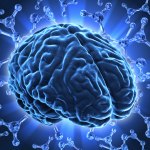Antidepressants under fire?
"Kennedy has long expressed skepticism about antidepressants, especially (SSRIs), questioning their safety and suggesting they are as addictive as heroin."

Select Page
by C. Scott McMillin | Mar 3, 2025 | Treatment | 0 |
"Kennedy has long expressed skepticism about antidepressants, especially (SSRIs), questioning their safety and suggesting they are as addictive as heroin."

by C. Scott McMillin | Feb 17, 2025 | Addictive Substances | 0 |

by C. Scott McMillin | Jan 27, 2025 | Addictive Substances | 1 |
by C. Scott McMillin | Dec 9, 2024 | Addiction Clinicians | 0 |

by C. Scott McMillin | Jul 15, 2024 | Addiction Clinicians | 0 |

by C. Scott McMillin | Jun 3, 2024 | Addiction Clinicians | 0 |
by C. Scott McMillin | Oct 23, 2023 | Addiction | 0 |
From a counseling perspective, it was clear to our clinical team that his habitual Internet use had reached a point where it was inseparable from his drug use.
Read Moreby C. Scott McMillin | Oct 17, 2022 | Addiction Clinicians | 0 |
The term was invented in the 1930’s to describe someone prone to becoming psychotic or severely disturbed under stress, but who otherwise was capable of functioning normally.
Read Moreby C. Scott McMillin | Aug 11, 2022 | Thinking About Addiction | 0 |
…so long as no claim is made for the product as a treatment or cure for a specific disease or condition, then “they can say anything they want to” about the supposed benefits of using it.
Read Moreby C. Scott McMillin | Jun 9, 2022 | People in Recovery | 0 |
These episodes occur “out of the blue,” not in conjunction with a known fear or stressor.”
Read Moreby C. Scott McMillin | Jun 6, 2022 | Addictive Substances | 0 |
The less good news, if I can call it that, is that none of the three was found to be more effective than our old friend, placebo.
Read Moreby C. Scott McMillin | Mar 24, 2022 | Addiction Clinicians | 0 |
…treat the two as independent and coequal in the clinical picture. Address them via an integrated treatment plan.
Read Moreby C. Scott McMillin | Mar 17, 2022 | Addiction Clinicians | 0 |
current estimates are that an estimated 1% of Americans suffer from a severe gambling problem. Including some 750,000 who are between ages 14 and 21.
Read Moreby C. Scott McMillin | Dec 6, 2021 | Addiction Clinicians | 0 |
I remember when this was a debate within psychiatric circles around alcoholism, back when that disease was seen as a symptom of emotional problems.
Read Moreby C. Scott McMillin | Jan 21, 2021 | Addiction Clinicians | 0 |
Depression, whatever the cause, doesn’t respond well to willpower. No better, for that matter, than addiction does.
Read Moreby C. Scott McMillin | Nov 2, 2020 | Addiction Clinicians | 0 |
Sociopathic people can be quite perceptive about others’ desires and motivations– it’s a key to manipulating them
Read Moreby C. Scott McMillin | Jul 27, 2020 | Recovery | 0 |
She began to recognize how vulnerable everyone was to something about which so little was understood.
Read Moreby C. Scott McMillin | Jun 4, 2020 | Addictive Substances | 0 |
Not completely unexpectedly, the research team found that using the more potent forms substantially increased the risk for cannabis use disorders (CUDs in the US), as well as anxiety disorders.
Read More